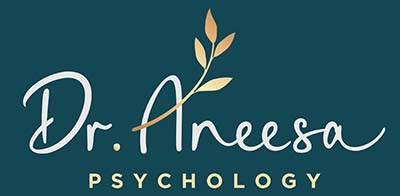Do I Really Need a Psychologist for my Anxiety? How to Choose the Right Mental Health Professional
Hypnotherapist. Counsellor. Coach. Psychotherapist. Psychologist. And all the rest with different titles. It can be overwhelming to know who to choose to help you with your anxiety when there is so much choice. What is the difference anyway? And why should you choose a licensed psychologist when they charge higher fees? Therapy is expensive! Maybe a life coach or a parenting ‘expert’ would be better. Who qualifies these people as ‘experts’ anyway? It’s a sea of options, and when you are already feeling overwhelmed with anxiety, it can be even more anxiety inducing to try to sift through to find the right person. Keep reading to find out some top tips and reasons to help you decide!
Coach, Counsellor, Therapist-What is the Difference Anyway?
Hypnotherapists, coaches, and self appointed ‘experts’ (think relationship experts and parenting experts, etc.) may or may not have formal mental health training and qualifications.
Credible hypnotherapists are not the same as ‘stage hypnotherapists’ and will have completed formal training in hypnotherapy and should be accredited by a hypnotherapy licensing body. However, the majority of them will not have had training in how to provide counselling or therapy to people, or have been trained in other therapeutic methods.
Qualified counsellors and psychotherapists will have undergone a training course to provide counselling and should be registered with the BACP (British Association of Counselling and Psychotherapy). Counsellors will be trained in non specific methods of counselling, which is great at providing a non judgemental and compassionate space for people to vent, talk, and discover their own solutions and coping mechanisms. This can work well for people who are dealing with life problems and mild mental health issues.
Psychotherapists will usually focus on using psychodynamic therapy to understand how childhood experiences are contributing to current problems, and this approach can work well for those who prefer long term therapy that is focused on understanding and exploring the past and how it has shaped them. Psychotherapy usually does not provide active coping tools or focus explicitly on present concerns and problems.
Coaches may or may not have a background in mental health, and often rely on their life experience to explicitly guide and advise people on how to move forward with current problems. Some psychologists and counsellors will also provide coaching services. The main difference between therapy and coaching will be that therapy should be provided by trained mental health professionals, and will involve drawing connections between the past and present, developing insight into current cycles of behaviour, and learning new coping skills. Coaching that is provided by non mental health professionals will usually focus on helping people to move forward through advice and goal setting.
Tips for Choosing a Coach or Counsellor
- Scrutinise their qualifications and ensure they are members of a professional association or licensing body. Legally, anyone can call themselves a coach, therapist, or counsellor, which opens people up to the possibility of psychological harm.
- Avoid anyone who makes over blown claims about their effectiveness and talks about how life changing it is to work with them! In mental health, we can never guarantee outcomes and it is very misleading to suggest that any person can transform a person’s life simply by working with them. Coaching or therapy is always a collaborative process and credit for it succeeding always goes to you (as the client) first!
When Should I Choose to Work with a Licensed Psychologist?
Psychologists have the highest level of training and experience in mental health and are required to be registered as ‘practitioner psychologists’ with the Health and Care Professions Council. The requirements for this include having a doctorate in Clinical or Counselling Psychology (and sometimes other areas of psychology).
Psychologists have undergone extensive coursework, training in different mental health settings, and are scientist-practitioners who conduct research and apply it in practice. We are required to use evidence based therapies and treatments, and we are trained to critically review the emerging psychology research on best practices. We are also required to engage in regular and ongoing continuing professional development courses and have our own ongoing professional consultation with other psychologists. This ensures a degree of quality assurance and accountability, and our ethical standards of practice ensure that we are not advertising our services in ways that are misleading to the public.
When you choose to work with a licensed psychologist, we are able to personalise the therapy approach we use to fit each client, as we are skilled in multiple therapy models. At Leeds Anxiety Psychologist, we only use NICE recommended treatments and therapies that have been shown in the psychology research to be effective.
While this doesn’t mean that every client we work with will improve, it does mean that we are able to steer away from trendy therapies and social media catch words and focus on scientific evidence to guide our treatment approaches.
Tips on Choosing a Psychologist:
- Ask for their HCPC registration number and look them up on the register to ensure they are actually a registered psychologist
- Ensure they are specialised in or experienced with the issues you need help with
- Go with your gut instinct as to whether you feel comfortable in working with them- therapy is deeply personal and you deserve to feel comfortable to open up without feeling judged, as well as experience a warm, welcoming, and compassionate professional relationship
- Be honest and forthcoming if there are specific therapy approaches that you prefer. Some people love having therapy ‘homework’ each week, others want coping strategies. Communication and being upfront with your psychologist is really important and will help them to be on the same page as you!
Hopefully this article has helped you to identify the type of professional you need to help you with your issues. Private therapy or coaching is a big commitment in terms of time and money, so you want to feel confident that you have chosen the best person for you to work with!
If you are ready to take the next step in your mental health journey, we would love to hear from you! Email your enquiry via the website today and we will be in touch soon.



















